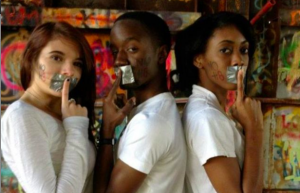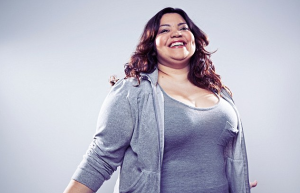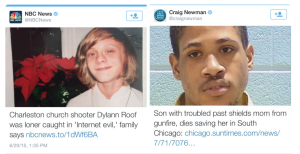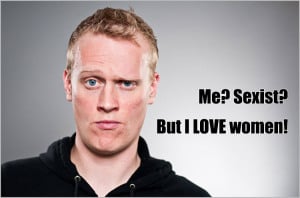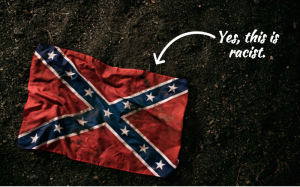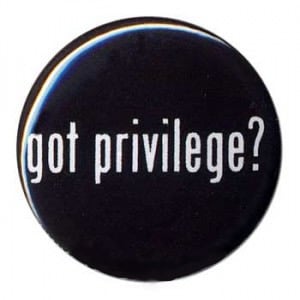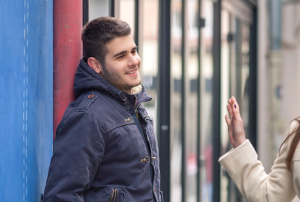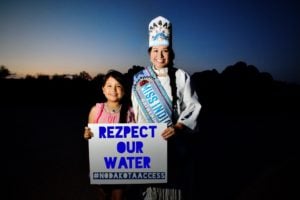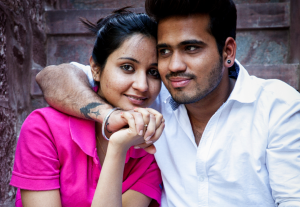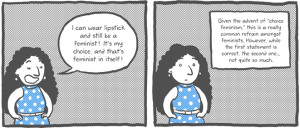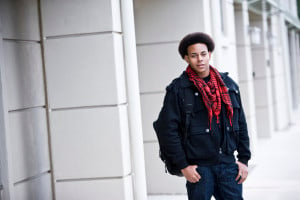
Source: iStock
I am tired.
I am tired of hiding from the domestically violent past, from the no-heat during Boston winters, from the daily threats my family faces for walking this colonized land without “proper documentation.”
A year-and-a-half ago, I sat in a rather empty courtroom, listening to a judge grant me “proper” immigration status in the United States after having lived undocumented for almost 17 years. I got this status at the expense of my mother who, in exchange for my secure residency, signed a legal document assuring that she would never ask me to petition her.
I, the child she saved from death cannot petition her. I, the child she risked her life for —crossing dozens of borders — cannot petition her.
I, the child she sometimes worked more than two full time jobs to support, cannot petition her as my own mother for “proper status.”
This is what some people call, “a broken immigration system.”
But this system is not broken. In fact, this system is working exactly as it was intended as it profits off of the exploitation of my mother’s labor, the separation of immigrant families, the incarceration of all people of color, the fear that has been instilled in the immigrant community, and my dependence on the medical industrial complex for PTSD medication.
Today, I dare to take up space. Today, I dare to give voice to my needs — and that of my mother’s. Today, I dare to demand a reclamation of my rights as an (un)documented person.
1. I Have the Right To Be Afraid
I am tired of having to control my emotions and pretend that the violence I have gone through has nothing to do with being a displaced negro from the diaspora.
I have the right to be afraid because there is no system in place that can 100% assure me that my body will never again be violated, put in a boat, and be shipped somewhere else in the world without my consent.
I have the right to be afraid when people that look like me are more likely to be shot dead than greeted.
2. I Have the Right To Put As Many Locks on the Door As I Want
My community has been terrorized too many times by immigration officials in the middle of the night because, in this country, sleeping comes at a cost.
If an additional lock will assure me that my elementary-school-aged siblings will get enough rest and not think about what life would be like if my mother, my step father, or I were to be deported, I will add the lock.
3. I Have the Right To Not Be Raided
Enough is enough. I always try to imagine what kind of privilege it must be to be calm at work, at school, at the restaurant, at the doctor’s, at the grocery store, or at home, and know that no one will just come and arrest me for breathing.
But then I remember — my community doesn’t have that privilege. We are too foreign to know “calmness.”
4. I Have the Right To Not Be Deported
Without the freedom to stay, I will never know the freedom to move. My community and I will forever be in chains until we are assured that we will not be deported, and that we will not be separated from our loved ones.
I have the right to not be deported because our lives as immigrants matter, our labor carries the weight of this country, and our existence is a living revolution.
5. I Have the Right Not To Be Shipped To The Wrong Country
In this system, people deemed foreign are always at risk. There have been too many people in my community that have been deported to the wrong country.
Many of these deportations are of Guatemalans or Salvadorians “accidentally” deported to Mexico. What’s to say that my Blackness will not have me deported to a country I do not know?
6. I Have the Right To Imagine a World Without Borders
Before I was 3, I knew what the border was — too many people from my village had died crossing it.
Too many people from my village had been kidnapped and taken to the other side of the border.
Too many people from my village were dying because the border disrupted the hundreds of years of our indigenous connection to the land.
7. I Have the Right To Not Be Coerced By Employers, Landlords, and Law Enforcers
I am a human being, yet employers constantly threaten me, and other members of my community, that if we say “no” they will call immigration and have us deported. Our landlords raise our rent or ignore our calls to fix our homes because they know they have something that we don’t — status.
And law enforcers, the more of us they “catch” (yes, like during slave-times), the more credentials they will have.
8. I Have the Right to Demand Workers Compensation
We are not machines and it is time that people begin to see immigrants with dignity.
No matter how “low-skilled” you think our jobs are, we demand respect and we demand a living wage because no one should be working 60+ hours a week and still struggle to pay the rent.
9. I Have the Right To a Doctor and Not Just a Mobile Clinic Drive
What is it like to know the name of your doctor or to call the doctors office and make an appointment? Those are honest questions, and yes, I want you to answer in your head at this moment.
If your life matters just as much as mine, then why is it that in this system, people that cannot afford health care, or who aren’t offered health care via employment or government, are just left to slowly die?
10. I Have the Right To an Education If and When I Want
My mother only made it to 6th grade because there was no higher schooling within two hours from our village in Oaxaca, Mexico. Understanding that, it seems clear that it is only by the chance of my location, not just my heart work or merit, that I got to go to college, much less high school.
I have a right to an education because leading up to my High School education, more teachers discouraged me to continue on to college, than those that rooted me on.
Despite maintaining decent grades, I was told that my “passion” for social justice issues was distracting, and that people like me (undocumented) never got anywhere in life.
Today, I need to make it clear, it is our right to an education, but only if and when we want it.
11. I Have the Right To See and Meet My Family — All My Family
All I want is to know my family. I haven’t seen aunts and uncles in almost 18 years. I do not know my half-sister, I only know of her.
What a world this is that a man-made border separates us from our loved ones. While I have had the privilege to grow up with my mother, my mother has not seen hers in 20 years.
Their relationship is documented in $5 phone calls, the first $1 eaten up by the phone operator asking her to select what language she wishes to hear — even though the phone card comes from a Spanish-speaking company and all the instructions on the card are in Spanish.
The operator mocks my mother and I in English.
12. I Have the Right to Attend Funerals, On Either Side of the Border
A part of growing up was hearing from others that friends and family members have passed away without you seeing them in years. I am tired that my community has to mourn from countries away instead of mourning with loved ones wherever they are.
I am exhausted of having heard that friends, family, and friends of friends have died crossing the border and their bodies are just left because others had to move on.
13. I Have the Right to Stop, Cry, and Mourn
Let me be clear. I have the right to stop, cry, and mourn because what I am asking for is not immigration reform, it is to end White Supremacy and uplift the voices of ALL people of color.
I am tired of having to hold in the pain in fear that I’ll just be seen as the angry Black person in the room.
Mourning is part of my existence, of my survival, of my culture, and I am no longer asking permission to mourn.
14. I Have the Right to Stop, Cry, and Laugh
My mother always reminds me that in the midst of all the negative experiences that immigrants of color are put through, we need to learn how to cry and laugh — it is the only way our bodies do not become numb.
I refuse to be unhappy, knowing that being sad is okay, too, but I refuse to let this system bring me down.
15. I Have the Right to Accept Love More Than Once
After living in so much fear and poverty, I have forgotten that I am worthy of love, that no matter how many mistakes I commit, I can still accept love.
We, as immigrants, have some of the fiercest love in this world. We regularly sacrifice our lives for those closest to us. During this sacrifice, we sometimes forget that we, too, need love.
Today, I dare accept love not from one person, but from my entire community, from past lovers, from current lovers, and for those I am too scared to love.
16. I Have The Right to Have an Accent
I am embarrassed to admit that I made it a life goal to lose my beautiful accent. I was tired of the bullying and of the racist, xenophobic, and white supremacist stereotype of being unintelligent for having an accent.
I will no longer monitor my accent. I will let my rolled r’s slip out of my tongue. I will celebrate the only language that allows my mother and I to communicate.
17. I Have the Right to Be Black
It is 2016, and we are still experiencing the unrest of our violent histories as Black folk displaced from the homeland. Today, I dare be unapologetic about my Blackness.
Yes, this Latinx is a diaspora negro and I have a right to my Blackness. I have the right to mourn a home my ancestors were forced out of. I have the right to take up space.
I have a right to celebrate my afro, the beautiful melanin that runs in my family, and the beauty, excellence, and brilliance that is Blackness.
18. I Have the Right to Be Queer
Everything I do, everything I am, everything I want, and everything I feel is queer.
I will not hide my queerness in a system where queerness may mean death, in a system where queerness and Blackness are supposedly never to meet, in a system where immigrants aren’t supposed to have the right to love — just to work and work and work. And then maybe sleep two hours a night.
19. I Have the Right to a Home
I have the right to a home because I am tired of hiding, running, and searching to find a place to belong. I, and all of my (un)documented community members have the right to a home. And not just any home — but a home free of immigration policies.
We have the right to a home free of psychological, physical and emotional abuse. A home where our youth feel safe. A home where we can cry, laugh, love, and be intimate.
We have the right to a home where trauma does not follow and surviving is no longer a concern. A home where there is more than enough to eat. A home where we can breathe, build, and create.
***
With this reclamation of our rights as (un)documented persons, my community will be able to live.
If there is anything that I have learned about the immigrant community, it is that we are resilient and there is nothing that we will not do to live.
And for now, we will continue to work against inhumane immigration policies, capitalism, White Supremacy, settler colonialism, and all other isms deeming us “alien,” “criminals,” and “other.”
[do_widget id=’text-101′]
Alan Pelaez Lopez is a Contributing Writer for Everyday Feminism and an Afro-Indigenous migrant that grew up in Boston via La Ciudad de México, documenting their existence as an (un)docuqueer poet, jewelry designer, and a huge Frida Kahlo fan. Alan is currently in graduate school pursuing a degree in Comparative Ethnic Studies in the Bay Area, and a member of Familia: Trans, Queer Liberation Movement.
Search our 3000+ articles!
Read our articles about:
Our online racial justice training
Used by hundreds of universities, non-profits, and businesses.
Click to learn more






